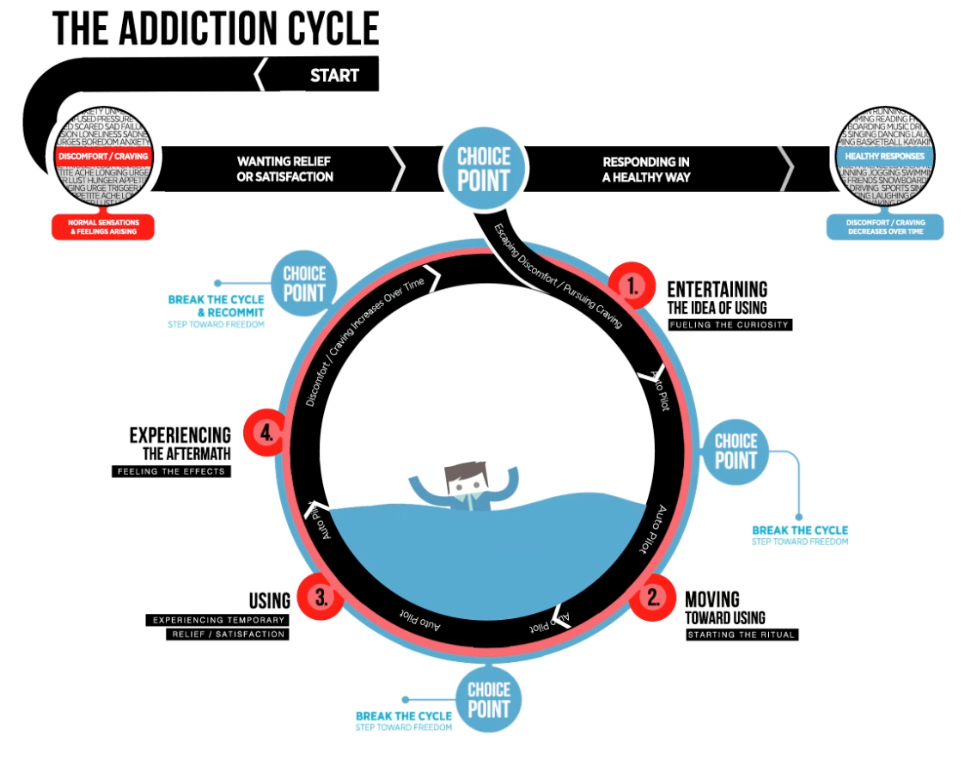5 Types of Porn Addiction Therapy
It is important to understand that seeking porn addiction therapy is a very brave step toward recovery. It’s not easy to admit to an addiction of any kind, but accepting it and seeking treatment is the beginning of a better life. No matter what type of therapy you choose, you will gain peace of mind, a release from shame, and control over your life that you may feel you have lost because of your porn addiction. Each of these treatment options are effective and can help to heal the addiction over time.
Minimization Fuels Porn & Sex Addiction; What it is and How to Stop
Minimizing our problems might seem like an effective way to deal with them but, in reality, all it does is prevent us from finding solutions. If left unchecked, minimization can lead to negative thinking patterns and damage our relationships with others. If you find yourself using minimization as a defense mechanism, there are steps that you can take to overcome it—the first being acknowledging your feelings about the situation. With acknowledgment comes clarity and with clarity comes power—the power to take control of the situation and resolve it once and for all. Sex Addiction, Porn Addiction, Boston, Blair Bisher, BPB Counseling
Bouncing Back from Rock Bottom: 5 Steps to be Stronger Than Ever
Everyone makes mistakes. We're only human, after all. But sometimes those mistakes can lead us to a place we never thought we'd find ourselves: rock bottom. Whether it's because of a job loss, the end of a relationship, or some other personal setback, hitting rock bottom is a feeling we all hope to avoid.
But it doesn't have to be the end of the world. In fact, some people even view hitting rock bottom as a blessing in disguise. It's an opportunity to start over, to rebuild your life from the ground up. If you're currently facing tough times, know that it's not the end. Use these five steps to pick yourself up, dust yourself off, and bounce back even stronger than before.
The Importance of Being Vulnerable with Your Partner
How To Become More Vulnerable With Your Partner
If you're not used to being vulnerable with your partner (or anyone else), it might feel daunting at first. Here are a few tips on how to take those first steps:
Start small: Don't try to share everything at once—that will only overwhelm both of you. Instead, start with something relatively minor that's been on your mind recently. For example, maybe there's something you've been wanting to do but haven't had the courage to mention it until now. Or maybe there's a minor disagreement between you that you've been avoiding addressing head-on. Whatever it is, start small and go from there.
What is an Integrity Disorder?
Integrity disorders are a type of personality disorder characterized by a lack of moral principles or a relaxed attitude towards morality. People with integrity disorders often struggle to tell right from wrong and may engage in criminal activity or other reckless behavior without any regard for the consequences. If you suspect that you or someone you know may have an integrity disorder, here are some things you can do to better understand the condition.
Therapeutic Separation: The Benefits & When to Implement
No couple is perfect, and even the strongest relationships go through tough times. During these difficult periods, it's not uncommon for couples to consider a temporary separation. This strategy, known as "therapeutic separation," can be an effective way to give both partners some space to think about the relationship and figure out what they really want. Here's what you need to know about therapeutic separation, including when it might be a good idea and what benefits it can offer.
What is Therapeutic Separation?
Therapeutic separation is a temporary break from a relationship that is taken in order to allow both partners time to assess the relationship and figure out what they want from it. This break can be either physical or emotional, or both. It's important to note that therapeutic separation is not the same as divorce—the goal is not to end the relationship permanently, but rather to give both partners some time and space to work through their issues.
The 5 Best Books for help with Porn Addiction
The 5 best books for porn addiction. The list includes books for men, women, gay men (chemsex) and partners of porn addicts.
book club: ‘atomic habits’
Atomic Habits, by James Clear, summary and review by Blair Bisher of BPB Counseling in Boston, MA.
6 steps to overcome porn addiction
6 Steps to overcome porn addiction. Porn addiction can be a difficult habit to break. But with the right tools and support, you can overcome it and reclaim your life.
Slow Down & Start Practicing Mindfulness in 3 Simple Steps
Slow Down and Start Practicing Mindfulness in 3 Simple Steps. Sex and Porn Addiction are fueled by a desire to escape your mind or feelings. Allow mindfulness to teach you how to encounter your mind and overcome instead of run.
60-Second Porn Addiction Assessment
Super quick way to self-identify addiction. Isolation, negative consequences and lack of control. If all three of these things exist as it relates to any one behavior in your life, you can feel confident that you fall somewhere on the spectrum of addiction.
Isolation. Do you find that you are increasingly isolated? Are you eliminating people from your life? Are others reducing the time they are spending with you? Are you declining social invitations so that you can spend more time alone, oftentimes spent acting out in your unwanted behavior? Increased isolation is a great indicator of addiction. Sobriety and healthy sustainable living are impossible without community.
Negative consequences. Are you finding that your life is impacted negatively by this unwanted behavior? Maybe it's a loss of sleep, spending more money than you would like to, feelings of shame and guilt that you cannot shake, impacting relationships… Addictive behavior will always show itself to impact in a negative way. Even if you think about the addiction cycle, the first stage which is preoccupation, you still have not turned toward using, or acting out, but simply living in a world of preoccupation, a fantasy world, can have considerable negative consequences, right? So whether you are simply fantasizing about acting out, or spending time acting out, any time you are finding negative consequences in your life from a certain behavior or thinking this is another sign that they're very well may be an addiction at play.
Lack of control. Lastly, have you ever tried to stop, or simply reduce, these unwanted behaviors and found yourself to be unable? If you have tried to quit and cannot, you have become aware that this behavior has more control over you than you do it. This is often a very discouraging realization, understanding your limits and degree of powerlessness. Oftentimes, we simply try to cut back a little bit, and if you fail in your attempt at reducing the behavior, that can also be a helpful indicator that there may be an addiction at play… Or rather that there is very likely an addiction at play.
The Sex & Porn Addiction Cycle
Successful & sobriety from sex and porn addiction all begins with education & awareness. First, let’s start with what addiction is & most importantly how it applies to you.
Search for Blog Posts via the Word Cloud Below:
- Porn Addiction
- Sex Addiction
- Compulsive Sexual Behavior Disorder
- sex addiction
- Education
- porn addiction
- Research
- Affair Recovery
- Infidelity
- recovery
- therapy
- Brain on Porn
- Partners of a Sex Addict
- Depression
- Boston
- Compulsive Sexual Behavior
- Affair Repair
- Book Club
- Porn
- Relationships
- Cheating
- Day 1 Letter
- Affair















